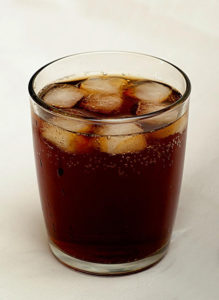 The ingredient xylitol is added to a number of products, but recent studies find it to have no health benefits (in sinus products) or even associated with health harms. A recent study found that xylitol is linked with an increased risk of heart attack and stroke.
The ingredient xylitol is added to a number of products, but recent studies find it to have no health benefits (in sinus products) or even associated with health harms. A recent study found that xylitol is linked with an increased risk of heart attack and stroke.
Xylitol is used in a large variety of products, especially as a sugar substitute (artificial sweetener). However, the research shows that xylitol it is prothrombotic - it causes platelets to clot, and increases the risk of thrombosis or clotting of the blood.
Interestingly, when comparing xylitol vs a glucose (sugar) in a study - drinking a xylitol sweetened drink increased every measure of platelet clotting in humans, but the glucose-sweetened drink did not.
From Science Daily: Sugar substitute linked to increased risk of heart attack and stroke, study finds
Cleveland Clinic researchers found higher amounts of the sugar alcohol xylitol are associated with increased risk of cardiovascular events like heart attack and stroke.
The team, led by Stanley Hazen, M.D., Ph.D., confirmed the association in a large-scale patient analysis, preclinical research models and a clinical intervention study. Findings were published today in the European Heart Journal.
Xylitol is a common sugar substitute used in sugar-free candy, gums, baked goods and oral products like toothpaste. Over the past decade, the use of sugar substitutes, including sugar alcohols and artificial sweeteners, has increased significantly in processed foods that are promoted as healthy alternatives.
The same research team found a similar link between erythritol and cardiovascular risk last year. Xylitol is not as prevalent as erythritol in keto or sugar-free food products in the U.S. but is common in other countries.
"This study again shows the immediate need for investigating sugar alcohols and artificial sweeteners, especially as they continue to be recommended in combatting conditions like obesity or diabetes," said Dr. Hazen, Chair of Cardiovascular and Metabolic Sciences at Cleveland Clinic's Lerner Research Institute and Co-Section Head of Preventive Cardiology in the Heart, Vascular & Thoracic Institute. "It does not mean throw out your toothpaste if it has xylitol in it, but we should be aware that consumption of a product containing high levels could increase the risk of blood clot related events."
In this new study, researchers identified that high levels of circulating xylitol were associated with an elevated three-year risk of cardiovascular events in an analysis of more than 3,000 patients in the U.S. and Europe. A third of patients with the highest amount of xylitol in their plasma were more likely to experience a cardiovascular event.
To confirm the findings, the research team conducted pre-clinical testing and found that xylitol caused platelets to clot and heightened the risk of thrombosis. Researchers also tracked platelet activity from people who ingested a xylitol-sweetened drink versus a glucose-sweetened drink and found that every measure of clotting ability significantly increased immediately following ingestion of xylitol but not glucose.

Hey people!!!!!
Good mood and good luck to everyone!!!!!